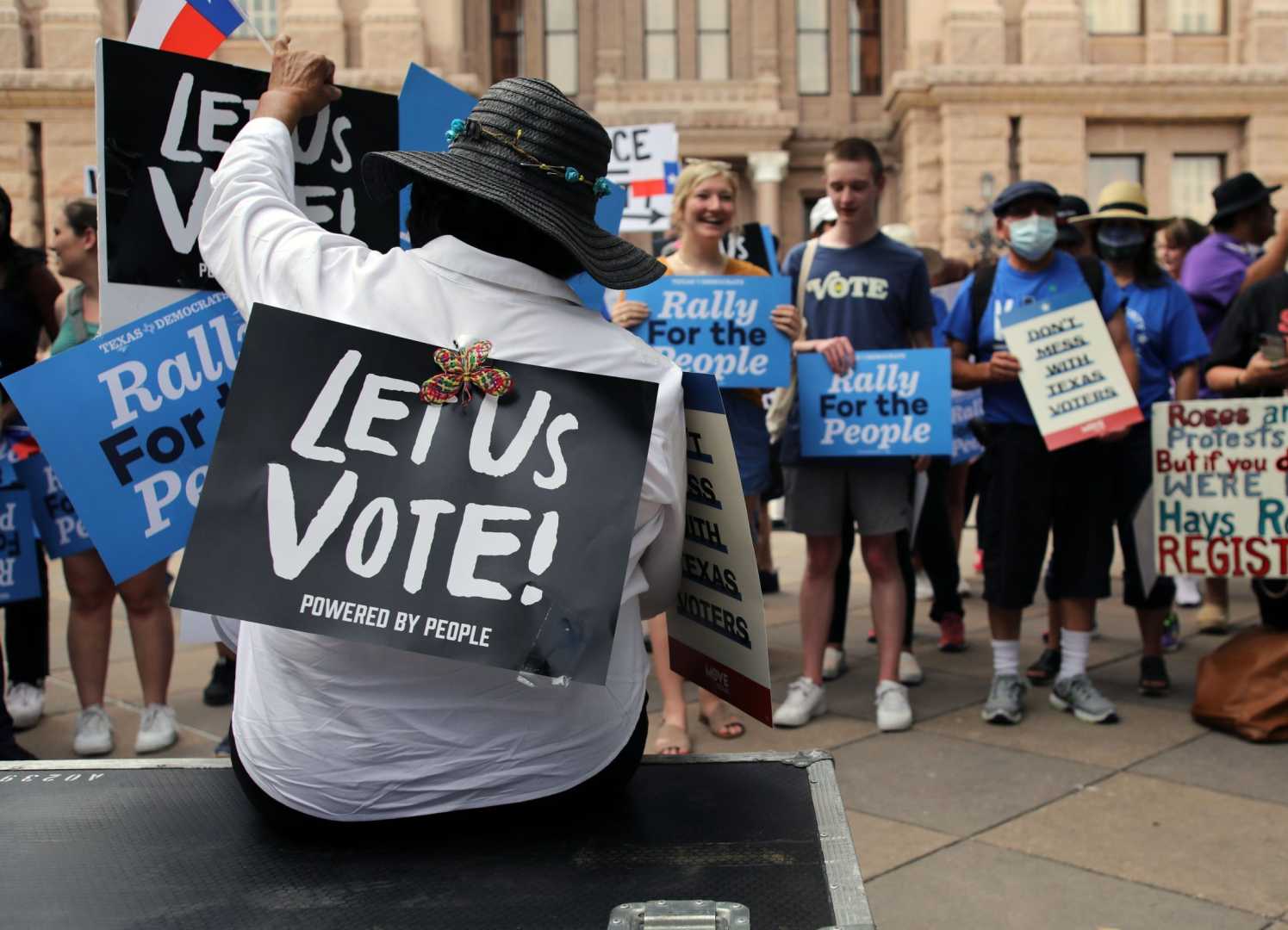Politics
House Set to Vote on Controversial Voter Suppression Measure

WASHINGTON, D.C. — The House of Representatives is scheduled to vote on the Safeguard American Voter Eligibility (SAVE) Act, a contentious piece of legislation that critics argue could disenfranchise millions of American voters. The bill, which requires proof of citizenship for voter registration, has sparked a significant backlash from voting rights advocates who claim it poses an unprecedented threat to democratic participation.
“If the SAVE Act is enacted, it would be the first federal voter suppression bill in recent memory, and possibly ever,” said Eliza Sweren-Becker, senior counsel for the Brennan Center for Justice. “It’s a five-alarm fire for American voters and election officials alike.”
The SAVE Act was introduced amid ongoing claims from Republicans about widespread noncitizen voting, a phenomenon for which evidence remains scant. Supporters assert that the measure is necessary to secure elections, arguing that it solidifies commitments to electoral integrity established by former President Donald Trump.
Despite these assertions, data from organizations such as the Brennan Center reveals that approximately 21.3 million U.S. citizens lack readily accessible documentation required to prove citizenship, including passports or birth certificates. This figure represents about 9% of eligible voters.
The SAVE Act, if enacted, would require all voters to present citizenship documents in person at local election offices. Critics, including Jonathan Diaz, director of voting advocacy at the Campaign Legal Center, warn that this requirement could disproportionately affect millions, particularly married women who have changed their last names and lack the necessary paperwork.
“The top line is that the SAVE Act would create really significant new burdens on Americans to register to vote,” Diaz said. “It would make it harder for most eligible American citizens to register and cast a ballot.”
Polling conducted since the bill was revived has shown that a majority of Americans oppose such stringent documentation requirements. Sweren-Becker emphasized that this proposed law would represent a significant regression in voting rights, which have been expanded steadily over the last six decades.
“Over the last 60 years, Congress has primarily focused on making voting more accessible,” Sweren-Becker said. “To enact the SAVE Act would depart greatly from that mission.”
Past experiences from states like Kansas, which enacted a proof-of-citizenship law in 2011 that ultimately disenfranchised more than 31,000 eligible voters, suggest significant pitfalls could arise from such legislation. The Kansas law was later deemed unconstitutional by a federal court.
Voting rights advocates assert that these trends could create an election administration nightmare. “This is a completely unfunded mandate that would place enormous burdens on local election officials,” Sweren-Becker added.
The SAVE Act, previously passed in the House under a different congressional makeup but failed to advance in the Senate, has gained renewed urgency now that Republicans control both chambers of Congress. House Republicans plan to prioritize the bill in light of expected testimony from election officials and activists claiming the potential for widespread voter suppressive effects.
Democrats are likely to mount strong opposition, citing lessons learned from past attempts at passing similar restrictions. “This bill isn’t being attacked because it would exclude citizens from voting—it won’t. It’s being attacked because the policy is wildly popular with the American people,” Rep. Chip Roy, a Texas Republican, stated.
The next steps for the legislation will likely unfold in the coming days and potentially lead to a Senate debate and vote. If passed, legal challenges are expected, particularly regarding its alignment with existing federal voting protections.












